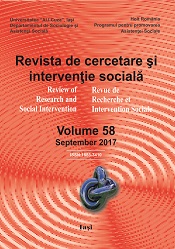The Social Meaning of Death and its Implications for Organ Procurement
The Social Meaning of Death and its Implications for Organ Procurement
Author(s): Cristina Gavrilovici, Magdalena STARCEA, Ioana Hiriscau, Ingrith MIRON, Liviu OpreaSubject(s): Social Sciences
Published by: Expert Projects Publishing
Keywords: death; brain death; organ procurement; definition of death; transplantation; donation after circulatory death; organ procurement;
Summary/Abstract: Today, the protocols for “donation after cardiac death” allow clinicians to harvest viable vital organs as soon as cardiopulmonary arrest is deemed to be irreversible, typically several minutes after diagnosing a loss of circulatory and respiratory function. Although these patients are not brain dead, the irreversibility of circulatory death make these patients suitable donors for organ donation, provided that organ harvesting will take place as soon as possible. In the neurologic definition of death, a person is dead when the whole-brain is dead. The continued circulation of blood helps to prevent the organs from deteriorating, making this method superior. Brain dead patients still display some residual functions of life, making non-health professionals wondering if they are really dead. However, the brain death criteria focus on an event, which can be precisely timed and detected with enough certainty to justify an irrevocable action, such as organ procuring. In this paper we analyze two concepts that surrounds death, both with important implications for the society in general and health professionals in particular: “irreversibility” – specifically related to the traditional definition of death (the cardio-pulmonary definition) and “personhood” – especially related to neurologic criteria of death (the brain death definition).
Journal: Revista de Cercetare şi Intervenţie Socială
- Issue Year: 2017
- Issue No: 58
- Page Range: 221-232
- Page Count: 12
- Language: English

